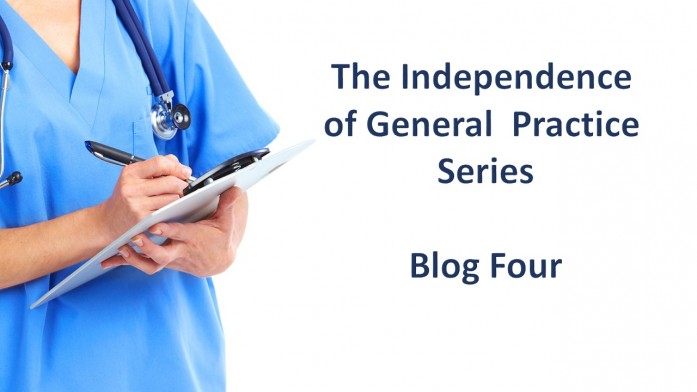Throughout August we’ve been running a series of blogs dedicated to the independence of general practice. In this fourth blog Ben looks at why independence matters.
At-Scale General Practice Must Stay Independent
The BMA has found GP practices with a higher CQC rating earn more income. My PhD wife regularly pulls me up for mistaking correlation with causation, so I wonder whether outstanding practices earn more income (i.e. the cause is that they are outstanding), or whether they are outstanding because they receive more income (i.e. the cause is that they receive more income)[i].
More research is required to test these hypotheses, but my money would be on the former. I know many areas where the opportunity for income is equal across practices, yet the better practices earn more (through better recovery of QOF income, through delivery of a wider range of enhanced services, and through private income streams).
So in the independent world of general practice, the practices that provide a better service to patients earn more money, while the less well run practices earn less. Independence, of course, means there is no bail out. The risk sits squarely with the GP partners as business owners. Compare this with those leading statutory bodies, such as CCGs. They will earn the same amount of money regardless of how well the CCG does. Salary is not linked to performance. There is no meeting with the accountant where the slow realisation descends on all of the partners that they are going to have to take a pay cut. Instead the CCG goes into deficit and money is spent on management consultants to “help” the CCG get back into balance.
I was fortunate enough recently to spend some time learning about how the system of general practice works in New Zealand. There, a key component is that each practice is part of a network. These networks are not statutory bodies. They were formed by practices nearly 30 years ago, essentially as a protectionist manoeuvre by practices, and their purpose is to strengthen and improve general practice.
The great thing about non-statutory bodies is that they cannot be abolished or reorganised. While in this country we have seen PCGs, PCTs and now (probably) CCGs come and go, in New Zealand over the same period the networks have been constant. They have been able to adapt and thrive over that time, and provide better and better support to their member practices. Indeed, the government has even channelled the contracts for practices through the networks, enabling the networks to take on the role of improving quality across their member practices.
I was the Chief Executive of Nene Commissioning, one of the leading practice based commissioning groups. We were a non-statutory body, but we worked with the PCT, with our member practices, and with many others to drive some impressive innovations across the system. With the advent of CCGs we transitioned into a statutory body. There is no doubt in my mind that becoming part of the NHS system, hounded by layers of hierarchy and regulation, strangled the innovation out of the organisation. It is precisely because CCGs are statutory bodies that ultimately they have not been able to fulfil their promise.
Meanwhile the networks in New Zealand have thrived and continued to innovate. Pinnacle, one of the leading New Zealand networks, has developed an improvement programme for its member practices. It funds it itself, it tests it on practices that it directly manages (the equivalent of our APMS contracts), and is working with its members to make them fit for the future. Not because it has to, not in response to a government initiative, but because its role is to strengthen and improve general practice. It only answers to its member practices, and because it is independent it cannot be abolished or reorganised.
This is an important lesson for us. Moving to at-scale general practice in many areas is the right thing to do. But finding ways to do it that maintain the independence of general practice, and the independence of any at-scale organisations it creates, is absolutely critical. Independence rewards success, and penalises failure. It fosters and encourages innovation. Most important of all, it creates stability and strength for the long term.


No Comments